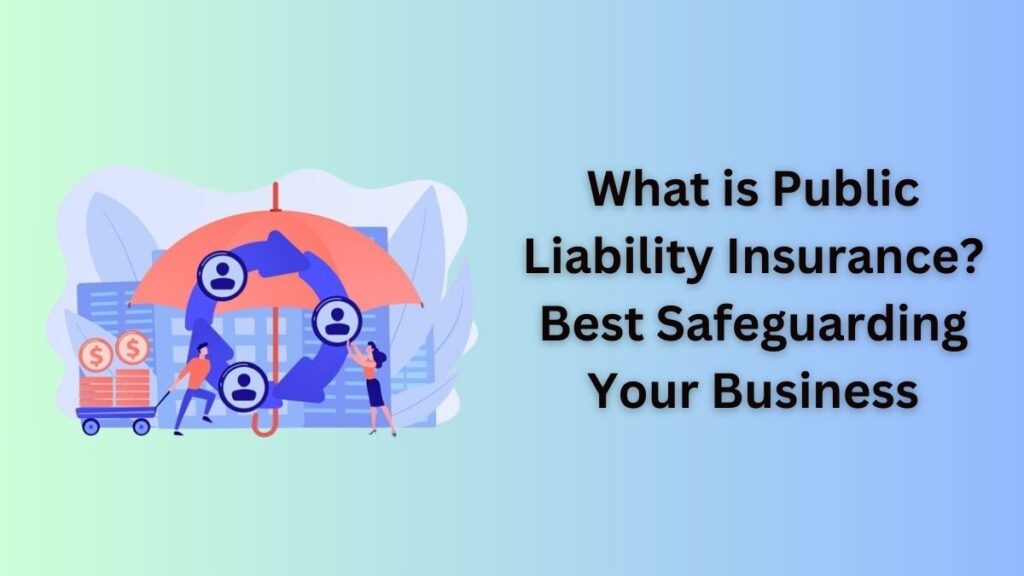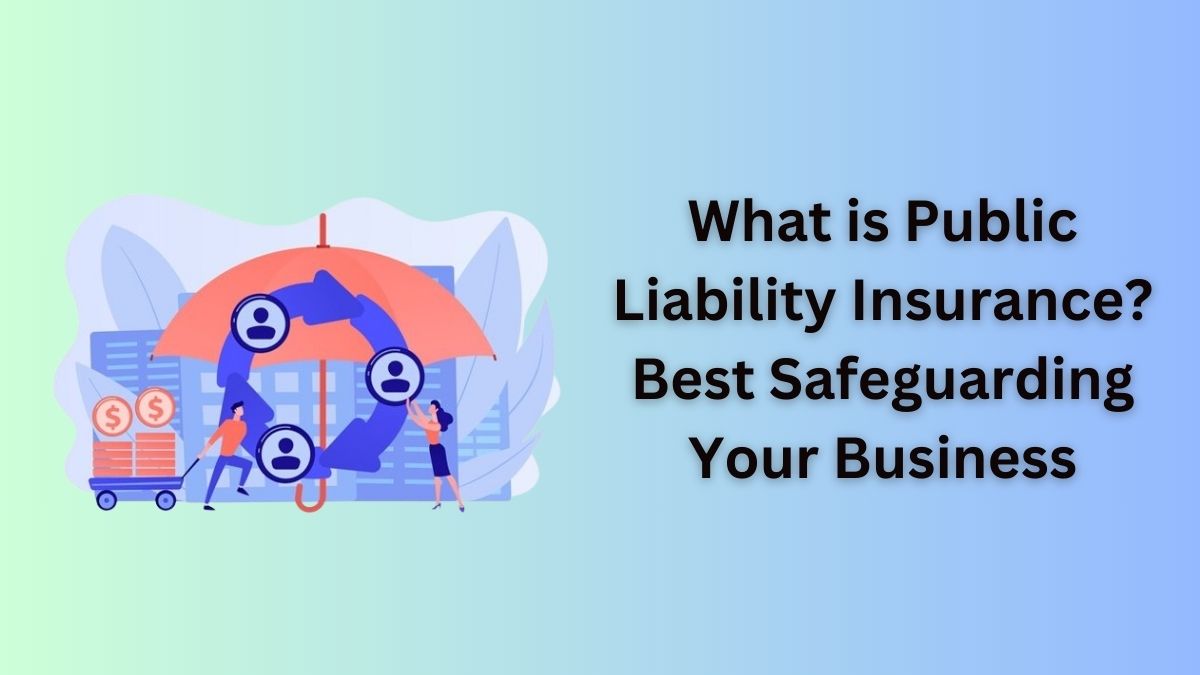As your business evolves and grows, it’s essential to regularly review your public liability insurance coverage to ensure that it remains adequate. Changes in operations, expansions, or new ventures may necessitate adjustments to your policy to maintain comprehensive protection. Ultimately, investing in public liability insurance offers peace of mind for business owners, knowing that they have a safety net in place to protect their assets, reputation, and financial stability in the face of unexpected liabilities.

Coverage
liability insurance provides coverage for third-party claims of property damage or bodily injury that occur on your business premises or as a result of your business activities.
Public insurance typically covers incidents such as slips and falls on your business premises, damage to third-party property caused by your business operations, and injuries sustained by third parties due to your business activities.
Exclusions
While public liability insurance offers broad coverage, it typically excludes intentional acts of harm, contractual liabilities, and employee injuries (covered under workers’ compensation).
Conducting a thorough risk assessment is crucial for determining the level of public liability insurance coverage your business needs. Consider factors such as the nature of your business, the level of customer interaction, and the potential risks associated with your industry.
Types of Claims
Property Damage Claims
These claims arise when your business activities result in damage to third-party property. For example, if a customer’s vehicle is damaged in your parking lot, public liability insurance would cover the repair costs.
Working closely with an experienced insurance agent allows you to customize your public liability insurance policy to meet your specific business needs. Whether you run a small retail shop or a large manufacturing plant, tailor-made coverage ensures that you’re adequately protected against potential liabilities.
Bodily Injury Claims
If a customer slips and falls in your store, sustaining injuries, public liability insurance would cover their medical expenses and any legal fees if they decide to sue.
Beyond insurance coverage, implementing proactive risk management strategies can help mitigate the likelihood of accidents and liabilities.
Cost Factors
Business Size
The size of your business directly impacts the cost of public liability insurance. Larger businesses with higher revenue and more extensive operations typically face higher premiums.
This includes maintaining a safe work environment, providing employee training, and regularly reviewing and updating safety protocols.
Industry Type
Certain industries are inherently riskier than others. Businesses operating in high-risk sectors, such as construction or healthcare, can expect to pay higher insurance premiums. While public liability insurance may not be legally required in all industries, certain businesses may be obligated to carry it to comply with regulations or contractual obligations.
Tips for Choosing Coverage
Assessing Risks
Conduct a thorough risk assessment to identify potential hazards and liabilities associated with your business operations. This will help you determine the appropriate level of coverage needed.
Customizing Policies
Work with an experienced insurance agent to tailor a policy that meets your specific needs. Consider factors such as the nature of your business, the level of customer interaction, and your budget constraints.
How to File a Claim
Documenting Incidents
In the event of an accident or injury on your premises, it’s essential to document the incident thoroughly. Take photos, gather witness statements, and keep detailed records of any communication with the affected party.
Contacting Insurers
Notify your insurance provider as soon as possible after an incident occurs. They will guide you through the claims process and ensure that you provide all necessary documentation to support your claim.
Public Liability Insurance for Small Businesses
Benefits
For small businesses, public liability insurance offers peace of mind knowing that they are protected against unforeseen liabilities that could otherwise jeopardize their financial stability.
However, small businesses may face challenges such as affordability and navigating the complexities of insurance policies. Working with a knowledgeable insurance agent can help mitigate these challenges.
Public Liability Insurance for Large Corporations
Large corporations often require higher coverage limits due to the scale of their operations and potential exposure to significant liabilities. Public liability insurance provides the necessary financial protection against these risks.
Risk Mitigation Strategies
In addition to insurance coverage, large corporations implement risk management strategies to minimize the likelihood of accidents and liabilities. This proactive approach helps mitigate potential losses and protect the company’s reputation.
Common Misconceptions
Contrary to popular belief, public liability insurance is beneficial for businesses of all sizes. Even small businesses can face substantial liabilities that could result in financial ruin without adequate insurance coverage.
Myth 2: It’s Too Expensive
While insurance premiums may seem like an additional expense, the cost of not having adequate coverage far outweighs the investment in insurance. In the event of a lawsuit or significant liability claim, the financial consequences could be devastating.
Must Read:-
- How Much is Commercial Auto Insurance? Best Way’s to upgrade you plan in 2024
- A Comprehensive Guide to Business Contents Insurance? Best Way’s to Fulfill There Needs in 2024
- What is Food Truck Insurance? Best Way’s to safeguard Your Food insights for 2024
Public Liability Insurance related [FAQs]
Q1. What does public liability insurance cover?
Public liability insurance covers third-party claims of property damage or bodily injury arising from your business activities.
Q2. How much public liability insurance do I need?
The amount of coverage you need depends on various factors, including the nature of your business, its size, and the level of risk associated with your operations.
Q3. Is public liability insurance required by law?
While public liability insurance is not legally required in all industries, certain businesses may be obligated to carry it, especially if they operate in high-risk sectors or require licensing.
Q4. Can I get public liability insurance online?
Yes, many insurance providers offer online platforms where you can obtain quotes and purchase public liability insurance quickly and conveniently.
Q5. What happens if I don’t have public liability insurance?
Without public liability insurance, your business is vulnerable to significant financial losses in the event of a liability claim. You may be personally liable for damages, legal fees, and other expenses.
Q6. How can I lower my public liability insurance premium?
To lower your insurance premium, consider implementing risk management practices, such as improving safety protocols, reducing hazards, and maintaining a clean claims history.
Conclusion
Public liability insurance is a vital safeguard for businesses of all sizes, providing financial protection against third-party claims of property damage or bodily injury. By understanding the coverage options, assessing risks, and customizing policies to meet your specific needs, you can ensure that your business is adequately protected against potential liabilities.
